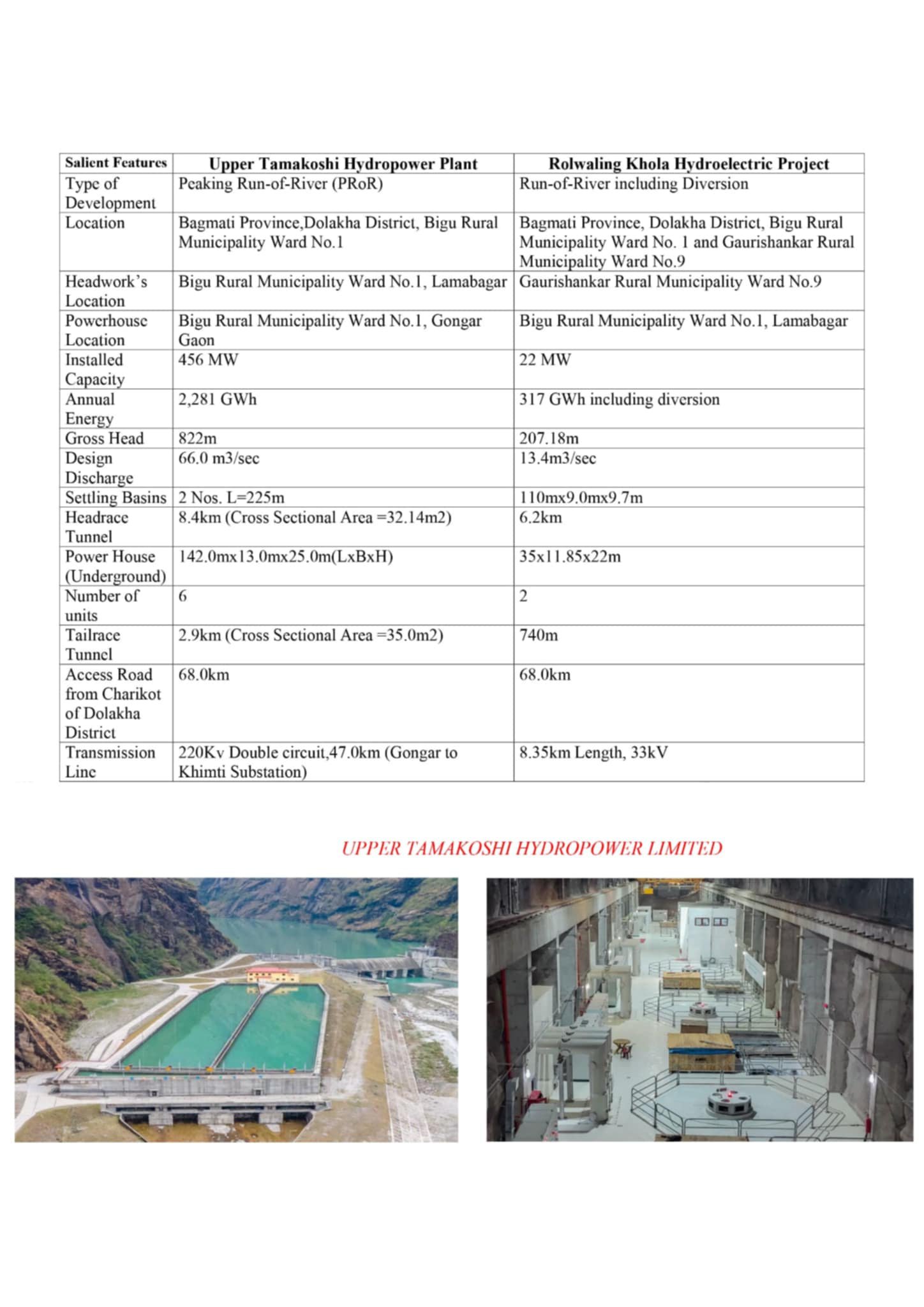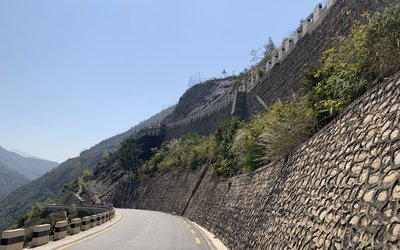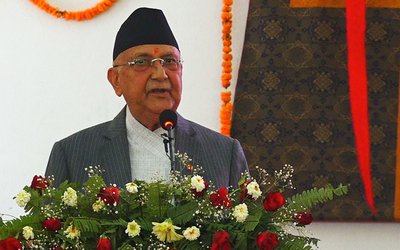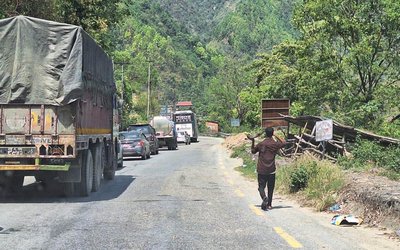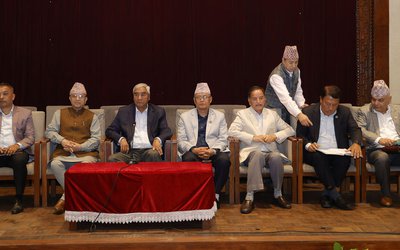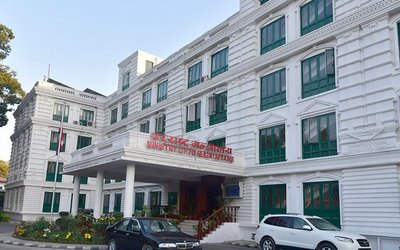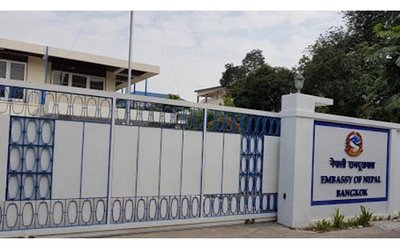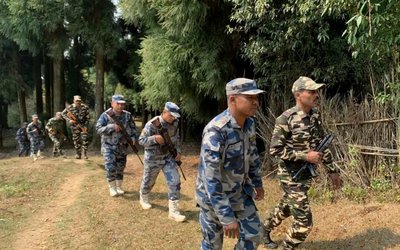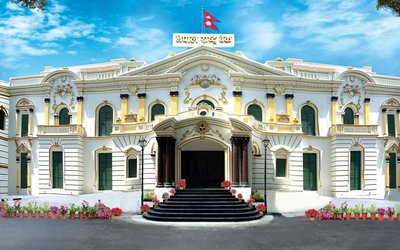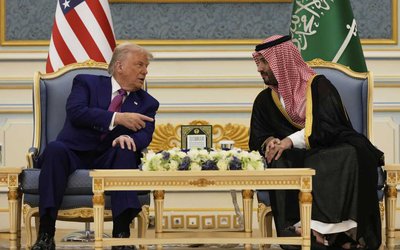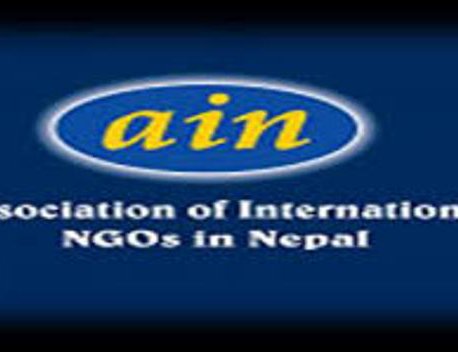
The NGO Federation of Nepal (NFN), an umbrella organization of NGOs, and the Association of International NGOs (AIN), an informal group of INGOs working in Nepal, request government of Nepal for policy framework allowing cash transfer for COVID-19 affected vulnerable population.
The Association of International NGOs (AIN) is an informal group of INGOs working in Nepal since 1996. NFN and AIN appreciates the Government of Nepal (GON)’s decision to provide relief to workers in the informal sector and other helpless populations impacted by COVID-19 by publishing the relief standard on April 1, 2020.
NFN and AIN are, however, concerned that the standard, however, has outlined food distribution as an only method to reach out to the targeted population. Though the standard is meant only for the distribution of relief through government resources, it is taken as the universal standard by local governments. I/NGOs are facing challenges in several parts of the country to distribute cash instead of or in equivalent to food packages.
Nonetheless, I/NGOs are committed to work in coordination with the local government. I/NGOs have known out of their engagement in several countries that cash transfer is a better means than food distribution to provide relief to targeted populations. In the 2014 flood, 2015 earthquake, and even in 2017 flood, Nepal practiced the cash transfers as a proven means of relief distribution and was found to be cost-effective.
The cash transfers have been found to improve access to basic services and alleviate poverty in various contexts (DFID: 2011). Locally managed cash transfer program has also strengthened the local government (the World Bank: 2018). Nepal has long-running experience as social security allowances. Studies have documented that cash transfer has been effective means to end poverty and provide better access to basic services and improved nutrition.
The presence of cooperatives in the rural areas can also complement the efforts of cash transfer. The GoN and the High-Level Committees to deal with COVID-19 have made several efforts to continue with essential services during the lockdown.
Transportation for food, water, medical supplies and other goods are continuing and essentially the market is functioning. In this situation, the cash-transfer will bring the following benefit: empowers people and families to buy the food of their choice (e.g. wheat or corn instead of rice) and make them feel dignified as rights-holder/ valued citizens. ain keeps small and medium scale enterprises afloat. The local govt. led supply of the food may threaten to bankrupt many of those small and medium businesses. sustains value chains and supports economic survival of entire communities.
Vulnerable people don’t just need to eat – access to cash allows them to respond to the wide range of issues that arises in a household. Government bodies can rather concentrate in making markets functioning through ensuring supplies and quality control. On the contrary, the government policy to distribute food and non-food item (NFI) has the following adverse effects: It is much harder to organize food and NFI distributions in a way that respects social distancing and avoids spreading the virus. It creates an additional burden for the recipient who needs to arrange for transportation of goods received, and they mobilize many people who should otherwise stay at home.
Handing out food and NFIs has been shown to hurt local markets by bringing in free goods that reduce local purchases. The distribution ends up competing with the local small and medium enterprises that normally sell those goods and can even drive local farmers/traders into debt by pushing down prices. For example, some places already started showing the evidence that the local vegetables are not being sold/purchased as the bulk produces started to be purchased by the municipalities. Distributing food doesn’t acknowledge the range of needs that recipients may have that go beyond hunger; it disempowers and assumes that households will not make the right choices for their family’s survival.
Cash transfer is often accused of misusing for buying temptation goods though there has not been adequate evidence to support this argument (World Bank: 2014). Good targeting and monitoring approaches can guarantee that cash transfers will meet the intended objective of avoiding hunger and ensuring people’s right to food and nutrition.
It also ensures transparency and prevents local government bodies from being accused of mismanaging resources or procurement of poor-quality goods as it has been reported in the recent newspapers. Considering above references, NFN and AIN are requesting GoN through the Ministry of Finance- a) to consider cash transfer options within the government program and review the standard of April 1; b)
If the government is not prepared to allow cash transfer out of its own program, MoF should provide clear guidelines at local level to allow I/NGOs or other non-governmental sectors to carry out cash transfer schemes. Many I/NGO members have shown their interest in only for cash distribution; hence, it would be a timely decision of the ministry to mobilize I/NGO resources to benefit vulnerable people including people living in poverty.
I/NGOs will ensure utmost internal control measures, take timely feedback from beneficiaries and work the resources appropriately to maintain food security. Had there been any queries and concerns, NFN and AIN are willing to have a virtual or face-to-face meeting with the ministry together with other government agencies in this regard.
- Nepal Receives remittances over 1,191 billion in nine months
- May 14, 2025
- Weather Forecast: Partly Cloudy To Mainly Fair In Kathmandu, Surkhet And Biratnagar
- May 14, 2025
- 175 Foreign Delegates to Participate in Sagarmatha Dialogue, Special Address by Representatives from China and India
- May 13, 2025
- Weather Forecast: Partly Cloudy With Brief Rain Is Likely In Kathmandu, Pokhara And Biratnagar
- May 13, 2025
- IME Group’s Ila Hotel Opens in Maulakali, Gaindakot
- May 12, 2025
